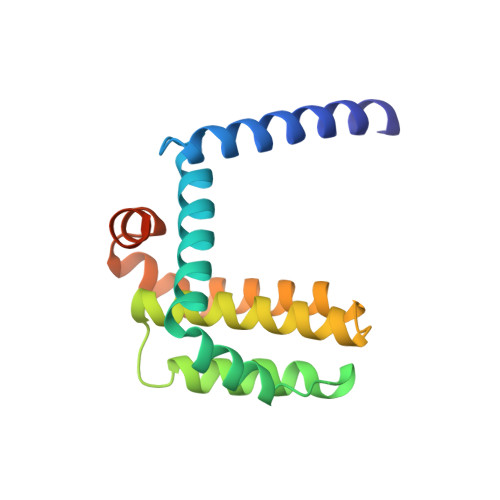Stabilizing the Pro-Apoptotic Bimbh3 Helix (Bimsahb) Does not Necessarily Enhance Affinity or Biological Activity.
Okamoto, T., Zobel, K., Fedorova, A., Quan, C., Yang, H., Fairbrother, W.J., Huang, D.C.S., Smith, B.J., Deshayes, K., Czabotar, P.E.(2013) ACS Chem Biol 8: 297
- PubMed: 23151250
- DOI: https://doi.org/10.1021/cb3005403
- Primary Citation of Related Structures:
2YQ6, 2YQ7 - PubMed Abstract:
An attractive approach for developing therapeutic peptides is to enhance binding to their targets by stabilizing their α-helical conformation, for example, stabilized BimBH3 peptides (BimSAHB) designed to induce apoptosis. Unexpectedly, we found that such modified peptides have reduced affinity for their targets, the pro-survival Bcl-2 proteins. We attribute this loss in affinity to disruption of a network of stabilizing intramolecular interactions present in the bound state of the native peptide. Altering this network may compromise binding affinity, as in the case of the BimBH3 stapled peptide studied here. Moreover, cells exposed to these peptides do not readily undergo apoptosis, strongly indicating that BimSAHB is not inherently cell permeable.
- The Walter and Eliza Hall Institute of Medical Research , 1G Royal Parade, Parkville, Victoria 3052, Australia.
Organizational Affiliation:


















